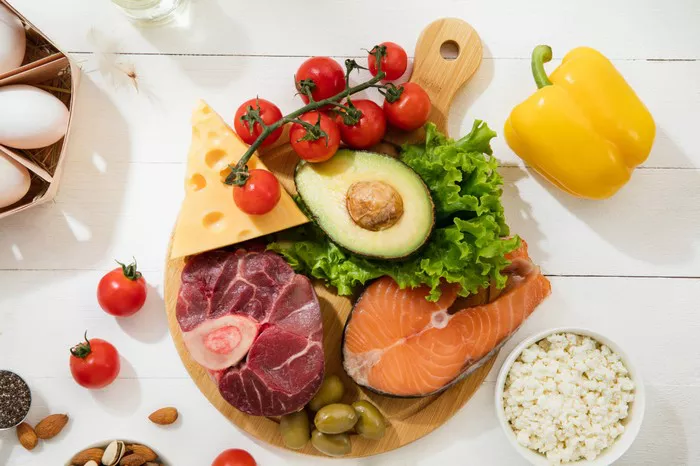Protein is a crucial macronutrient in the diet of anyone looking to build lean muscle. The role of protein in muscle synthesis is well-documented, serving not only as a building block for muscle but also aiding in recovery and growth. However, not all proteins are created equal when it comes to their efficacy in promoting lean muscle mass. This comprehensive article delves into various protein sources and examines which might be the best option for those looking to enhance their muscle growth while maintaining low body fat.
Protein and Muscle Building
Muscles need protein for repair and growth. When you engage in strength training or resistance exercises, the fibers in your muscles undergo stress and micro-tears. It is the repair process of these micro-tears that leads to muscle growth. Protein, composed of amino acids, is essential for this repair process.
The Role of Amino Acids
Amino acids, the building blocks of proteins, play a pivotal role in building muscle. There are 20 different amino acids, and nine of these are considered essential because the body cannot synthesize them; they must be ingested through diet. The presence and proportion of these essential amino acids (EAAs) determine a protein’s quality.
Protein Quality and Muscle Synthesis
The quality of a protein is often measured by its digestibility and the amount and variety of essential amino acids it contains. The Biological Value (BV), Protein Digestibility Corrected Amino Acid Score (PDCAAS), and Digestible Indispensable Amino Acid Score (DIAAS) are standards used to rate protein sources based on how well they supply the needs for protein synthesis in the human body.
Best Protein Sources for Lean Muscle
When selecting a protein source, it is essential to consider both the quality of the protein and how it fits into a diet aimed at building lean muscle mass. Here, we explore various high-quality protein sources that are beneficial for muscle growth and maintenance.
Whey Protein
Characteristics and Benefits:
Whey protein is a byproduct of cheese production and is highly regarded for its excellent amino acid profile. It is rich in branched-chain amino acids (BCAAs), including leucine, which are crucial for muscle protein synthesis. Whey protein is fast-digesting, making it ideal for post-workout recovery.
Types of Whey: There are three main types of whey protein: concentrate (WPC), isolate (WPI), and hydrolysate (WPH). Isolate contains the highest percentage of protein and is the quickest to digest, making it ideal for muscle recovery.
Casein Protein
Characteristics and Benefits:
Casein protein, like whey, is derived from milk. However, it is digested and absorbed much more slowly. This slow digestion rate makes casein ideal as a pre-bed protein source, providing a steady release of amino acids overnight, which aids in muscle recovery and growth.
Anti-Catabolic Properties: The slow release of amino acids helps prevent muscle breakdown during periods of fasting such as sleep.
Egg Protein
Characteristics and Benefits:
Eggs are considered a “perfect protein” because they contain all nine essential amino acids in the right ratios. The protein in eggs is highly bioavailable and is second only to whey in terms of its leucine content.
Whole Eggs vs. Egg Whites: Recent studies suggest that consuming whole eggs post-exercise leads to a greater muscle-building response than consuming egg whites alone, despite equal protein content.
Plant-Based Proteins
Characteristics and Benefits:
For vegetarians and vegans, plant-based proteins provide an essential source of amino acids. Soy, pea, and rice proteins are among the most popular plant-based proteins.
Soy Protein: Soy is a complete protein, containing all nine essential amino acids. It has been shown to promote muscle growth, though not to the same extent as whey.
Combining Plant Proteins: Plant proteins can be combined to provide a complete amino acid profile. For example, rice and pea protein complement each other well.
Beef Protein
Characteristics and Benefits:
Beef protein supplements are made from beef that has had the fat and cholesterol removed. It is a complete protein source that is rich in vitamins and minerals, supporting overall health as well as muscle growth.
Creatine Content: Beef is a natural source of creatine, which can enhance performance and muscle growth during resistance training.
Factors to Consider When Choosing a Protein
Digestibility and Absorption
Protein sources that are quickly digested and absorbed are typically preferred post-workout to stimulate muscle repair and growth. Casein, with its slow digestion rate, is an exception that is beneficial as a nighttime protein.
Dietary Preferences and Restrictions
Individual dietary needs and restrictions play a significant role in protein choice. Allergies, lactose intolerance, vegetarianism, or veganism can all dictate the type of protein one might choose.
Whole Foods vs. Supplements
While supplements areconvenient, obtaining protein from whole food sources is generally recommended for overall health. Whole foods provide additional nutrients that supplements lack.
Conclusion
The best protein for building lean muscle depends on various factors, including individual dietary needs, preferences, allergen sensitivities, and specific goals related to muscle gain and overall health. Whey protein stands out for its rapid digestibility and rich amino acid profile, making it ideal for post-workout recovery. Casein’s slow-release properties make it excellent for preventing muscle breakdown during sleep. Plant-based proteins offer valuable options for those with dietary restrictions, and when combined, can provide a complete amino acid profile. Ultimately, the best approach is a balanced diet that includes a variety of protein sources to support not only muscle growth but also overall health.
[inline_related_posts title=”You Might Be Interested In” title_align=”left” style=”list” number=”6″ align=”none” ids=”7872,7838,7783″ by=”categories” orderby=”rand” order=”DESC” hide_thumb=”no” thumb_right=”no” views=”no” date=”yes” grid_columns=”2″ post_type=”” tax=””]































